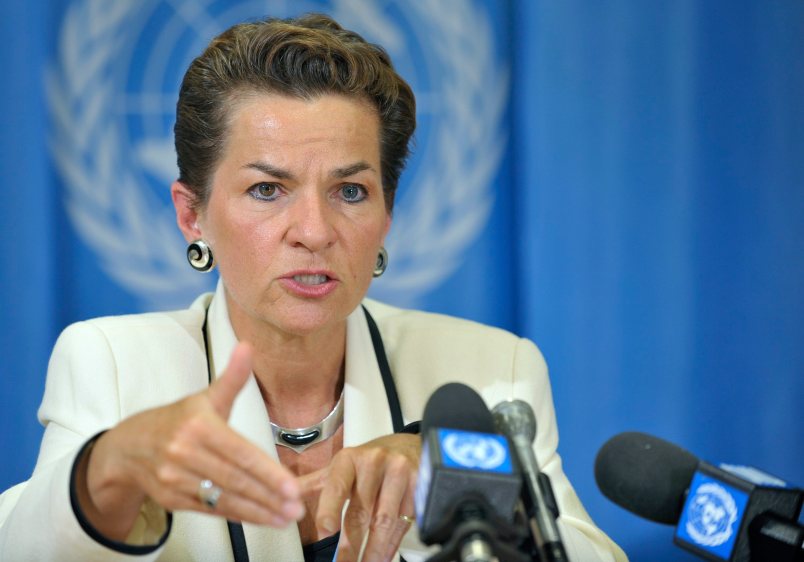CANBERRA, Australia (AP) — Technological advances that have reduced prices and improved efficiency of renewable energy have helped transform the politics around climate change since 2009 when an attempt to forge a global deal on reducing greenhouse gas emissions failed, the U.N. climate chief said Thursday.
Christiana Figueres, executive secretary of the U.N. Framework Convention on Climate Change, said countries were ahead of schedule in negotiating a landmark agreement on curbing greenhouse gases that can be adopted at a Paris summit in December.
“We’re in a very, very different position to Copenhagen not just from a procedural point of view, but from many other points of view,” Figueres told reporters during a visit to Australia.
Figueres, who became the U.N. climate chief in 2010 following the Copenhagen summit’s failure to reach agreement on cutting emissions, said technological advances were the first of several factors that had created “a very changed political environment.”
The price of solar panels has plummeted 80 percent since Copenhagen. Panels are also 40 percent more efficient, thanks to technologies that include Tesla batteries that can store solar electricity in homes.
The cost of solar power was already the same or cheaper than power from the grid in at least 60 countries, she said.
Investments in solar, wind and geothermal energy technologies have increased massively since Copenhagen, demonstrating “confidence that the investment into clean technologies is viable and is profitable,” she said.
Last year, a record $271 billion was invested in renewable energy, with the growth of renewable electricity capacity outpacing the growth in fossil fuel-fired capacity, she said.
The number of laws and regulations around renewable energy and climate change had increased 20-fold since Copenhagen, indicating that the world’s regulatory framework was headed toward a cleaner energy mix, she said.
U.N. negotiators in February produced an early draft of what eventually should become a landmark climate deal in Paris. The draft was produced four months ahead of schedule. The latest version has just 47 pages.
“That is remarkably different to where we were in the lead up to Copenhagen where we did not have an official negotiating text, where we had 300 pages of compilation of texts, but certainly no negotiating text,” Figueres said.
The Paris agreement isn’t expected to stop climate change, but would be the first time that all 194 countries agree to do something about it. Previously only rich countries have committed to limit their emissions of global warming gases, primarily carbon dioxide, from the burning of coal, oil and gas.
The slow-moving U.N. talks got a boost last year when top climate polluters China and the U.S. jointly announced emissions-limiting pledges for the Paris deal, which would take effect in 2020.
Scientists say the emission cuts are needed to make sure that global warming doesn’t reach dangerous levels.
Copyright 2015 The Associated Press. All rights reserved. This material may not be published, broadcast, rewritten or redistributed.







I wouldn’t call the Copenhagen conference a failure. We got to see James Inhofe being literally laughed at by the foreign press. That made it all worthwhile. But I guess big advances in solar technology are nice too.